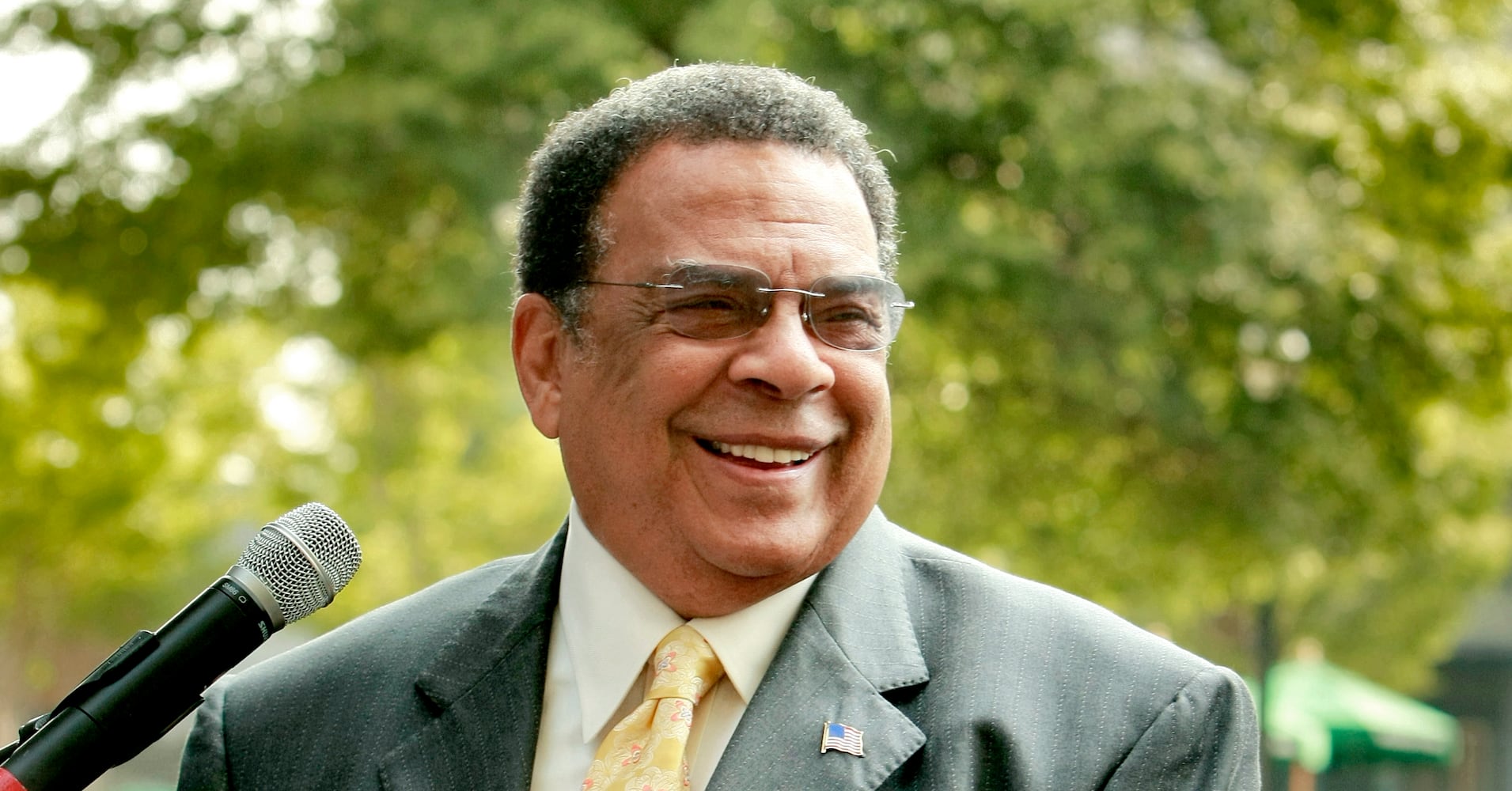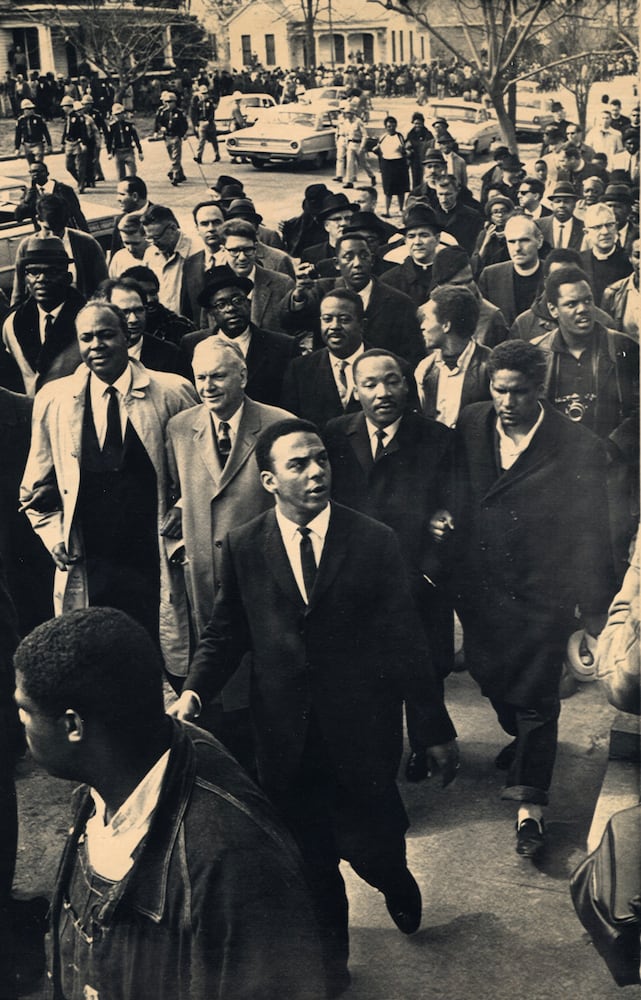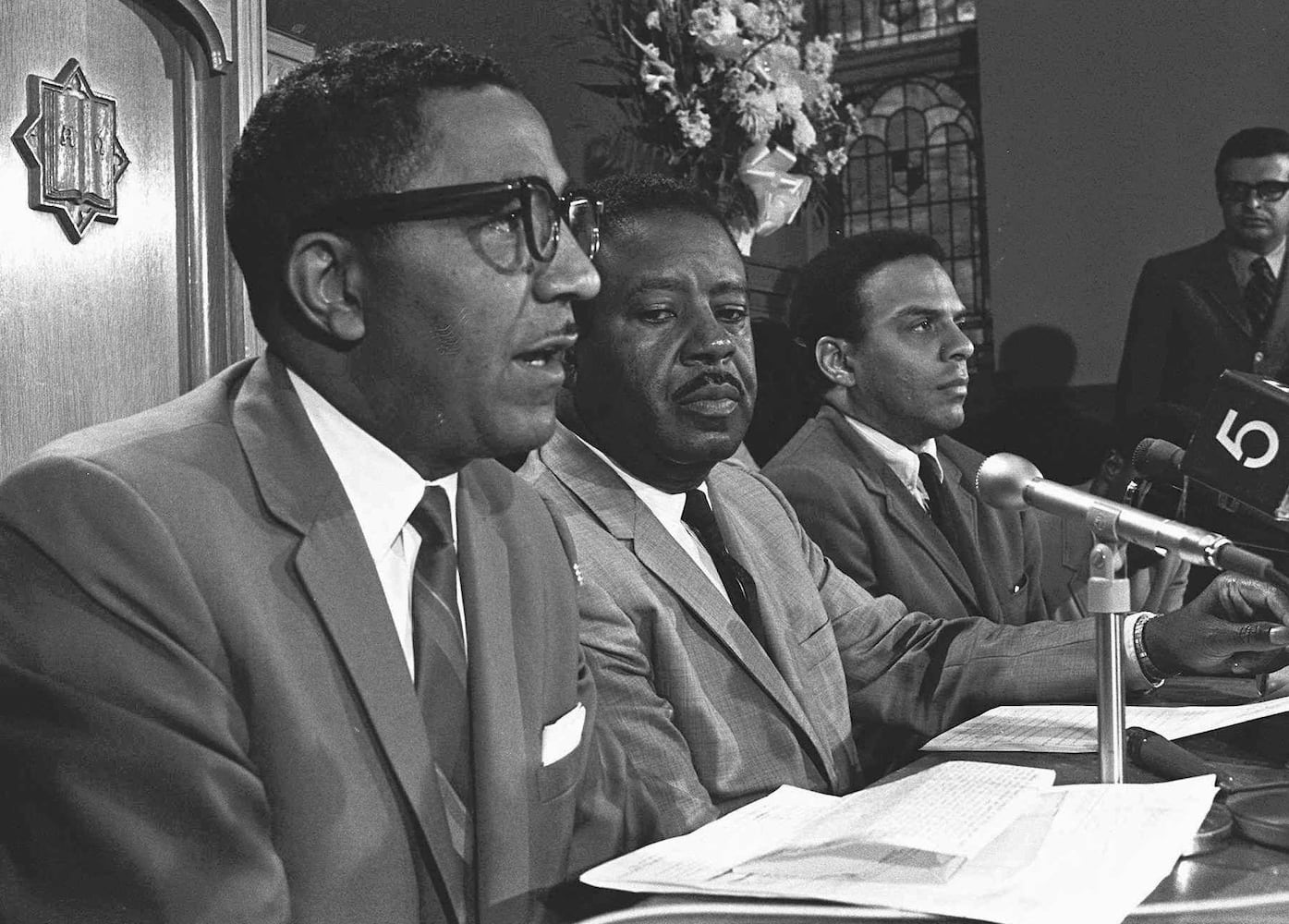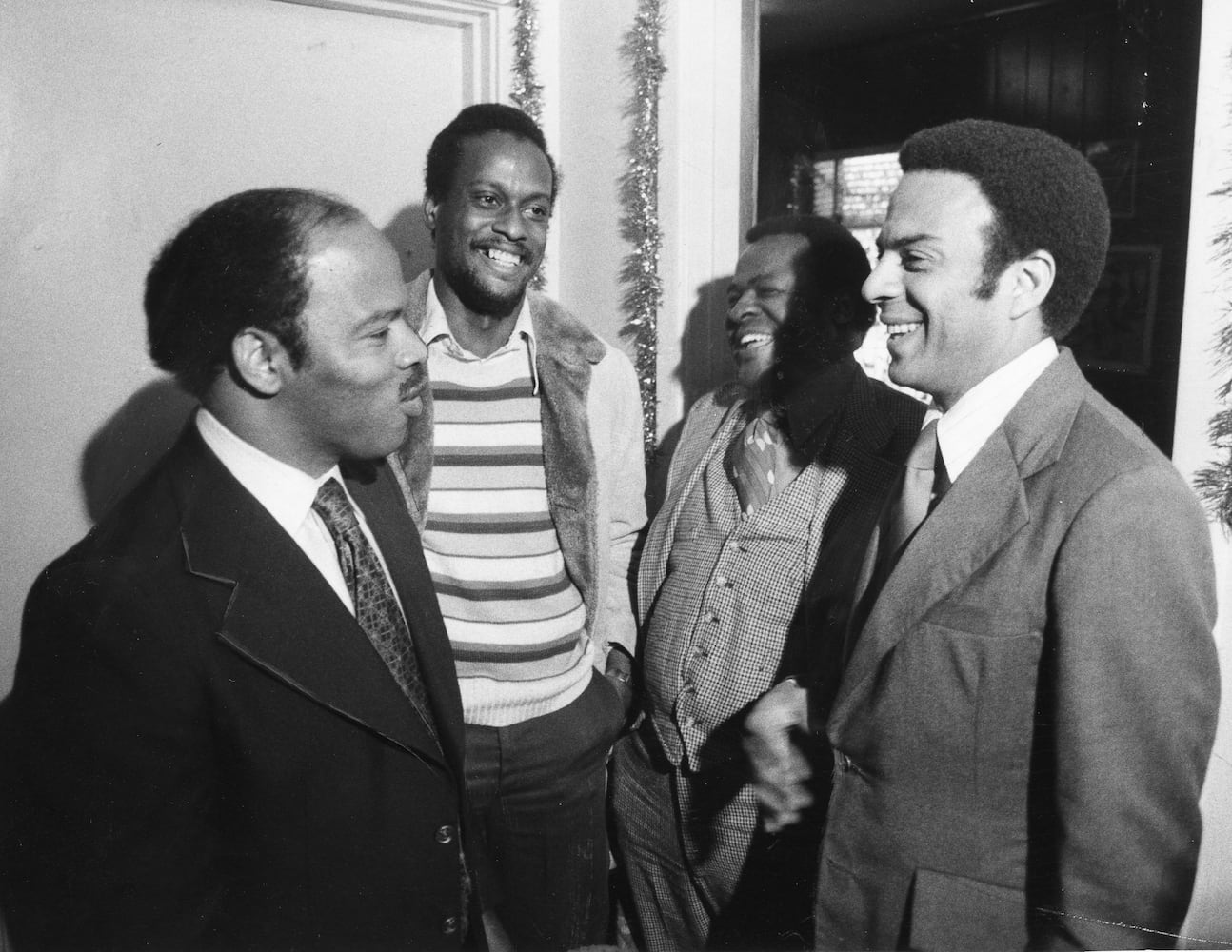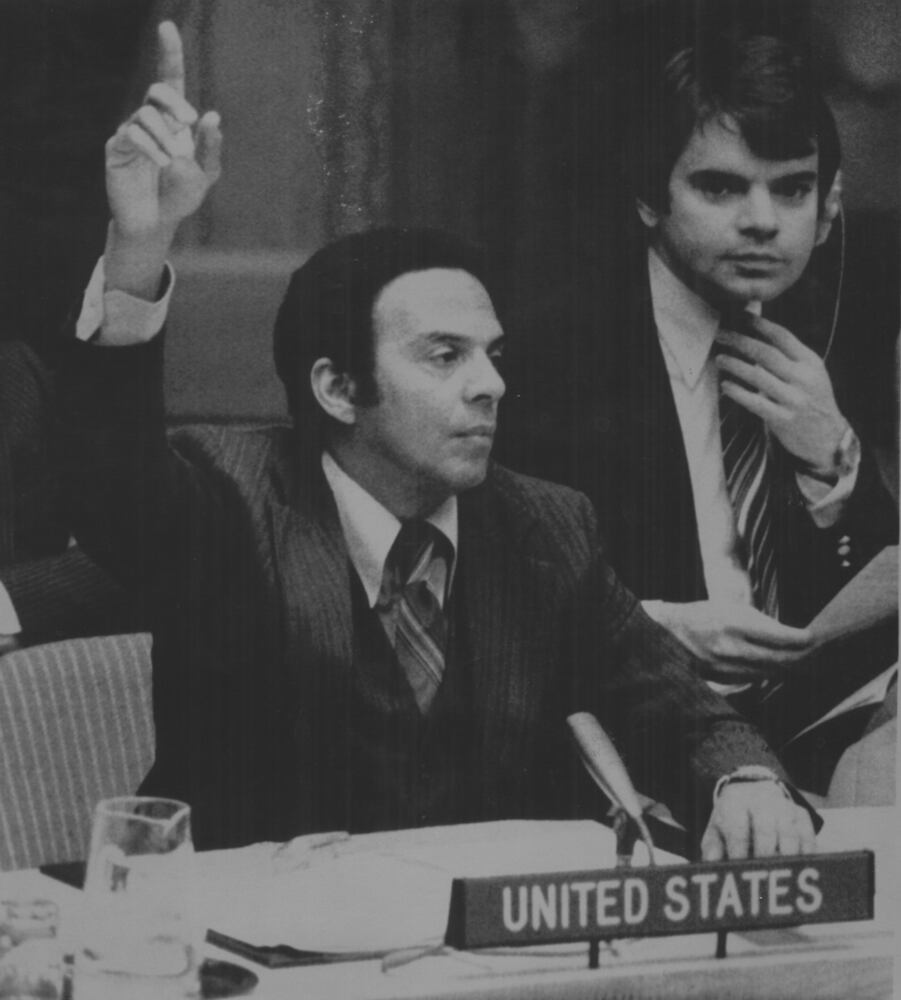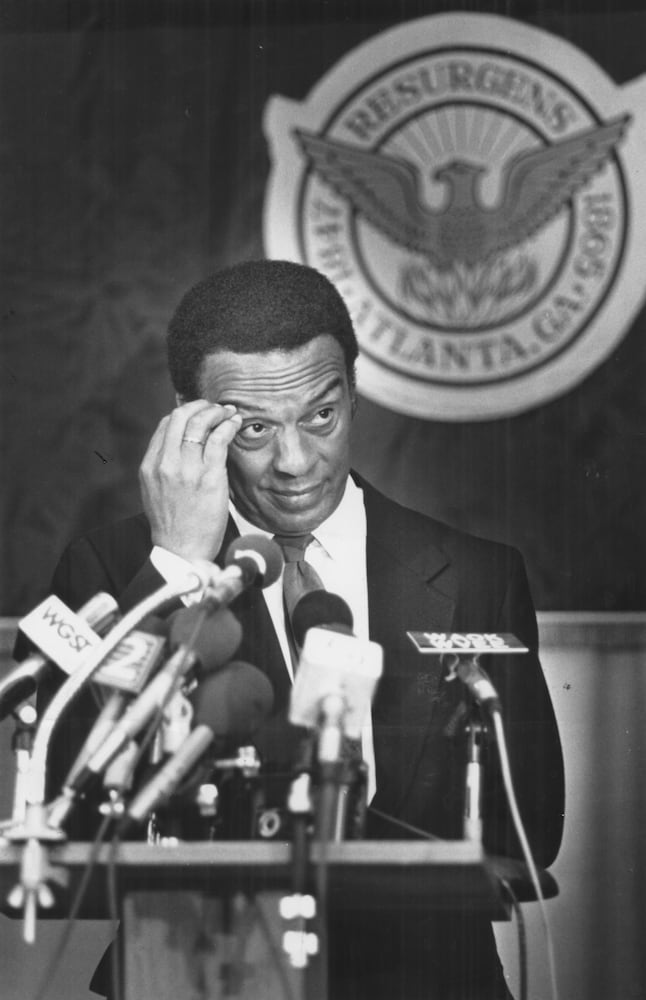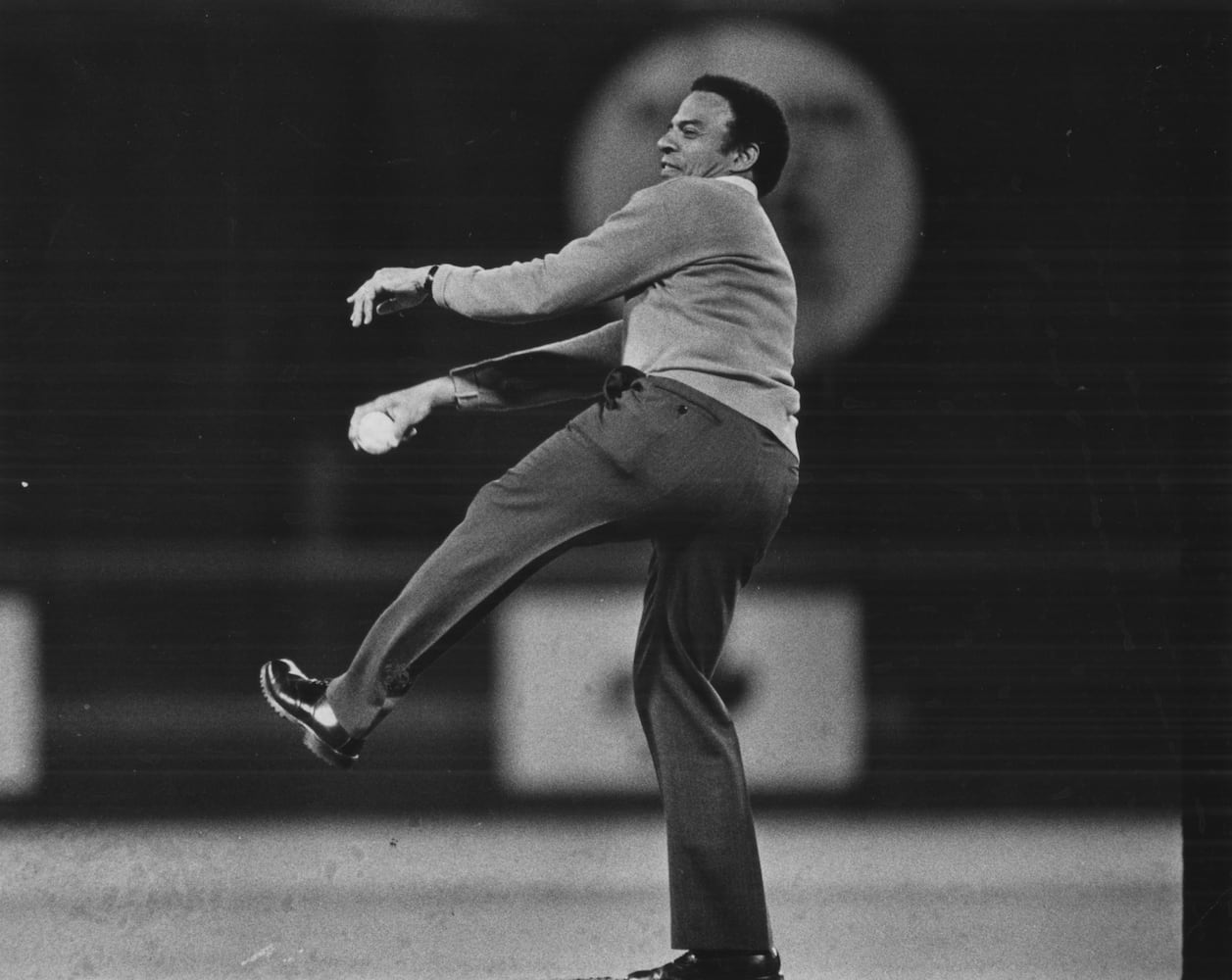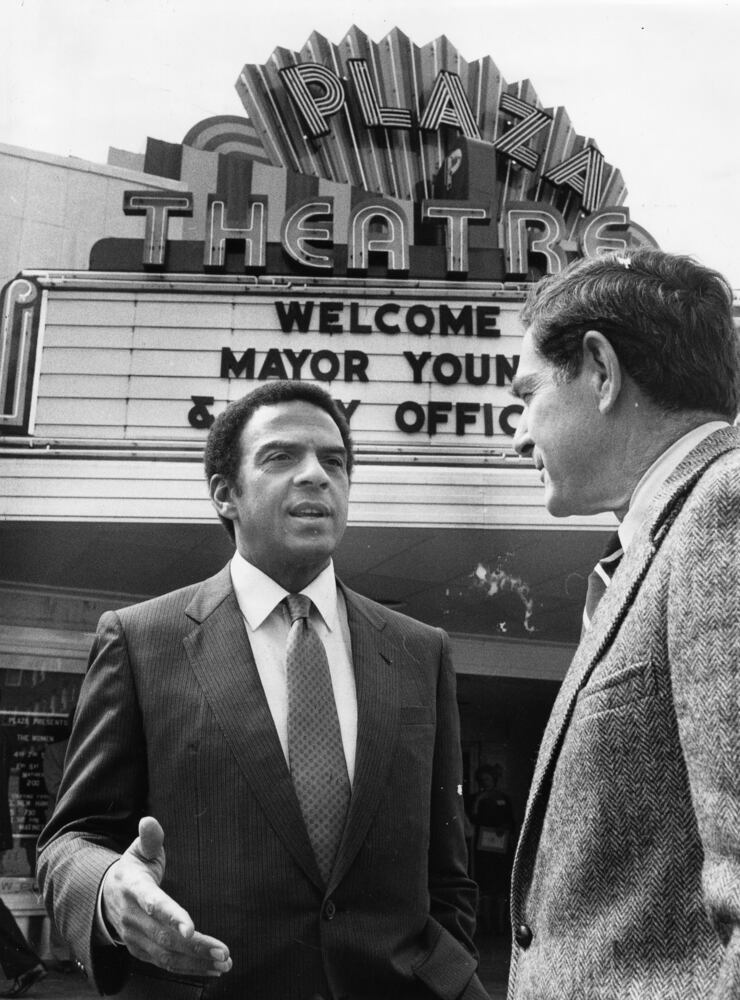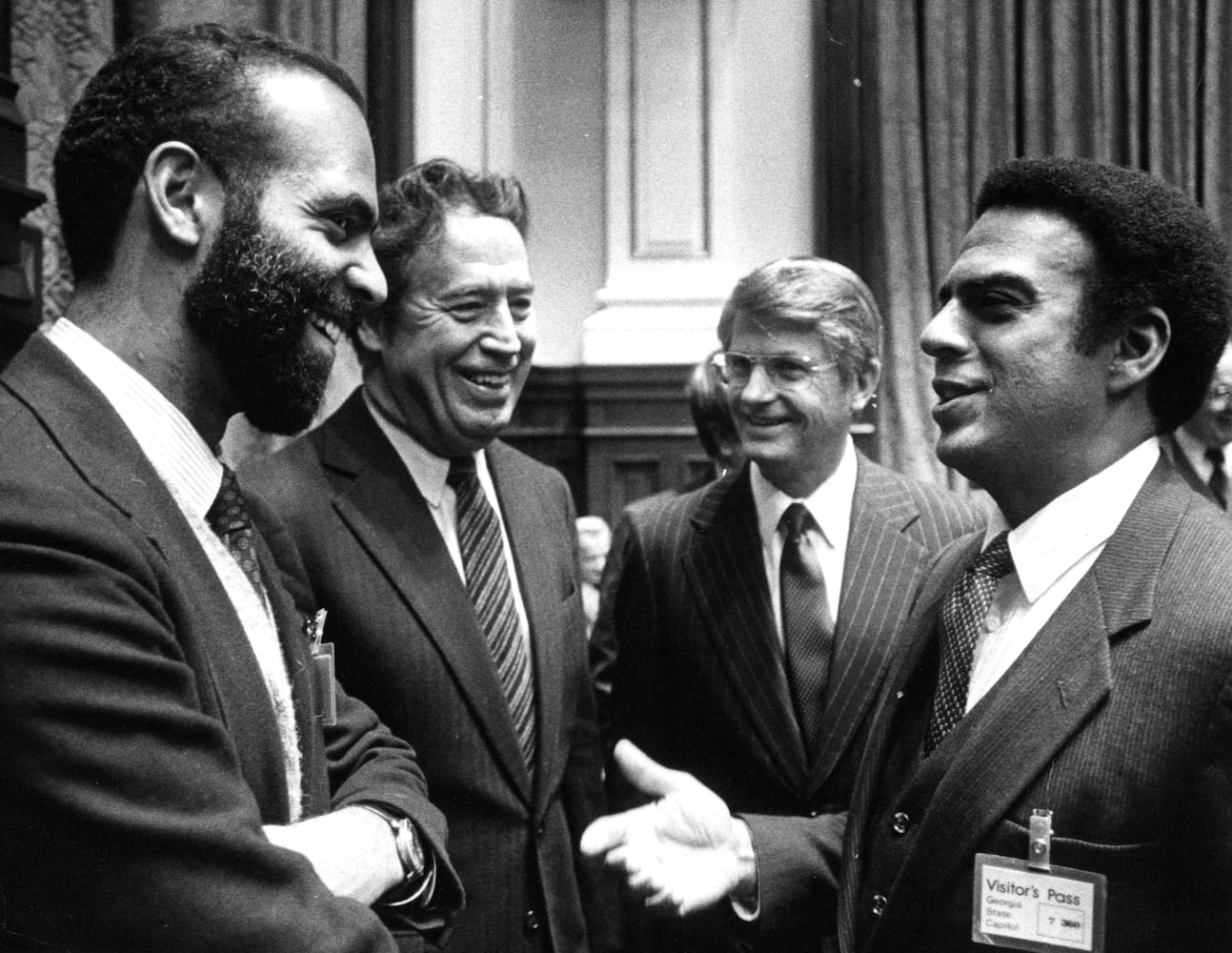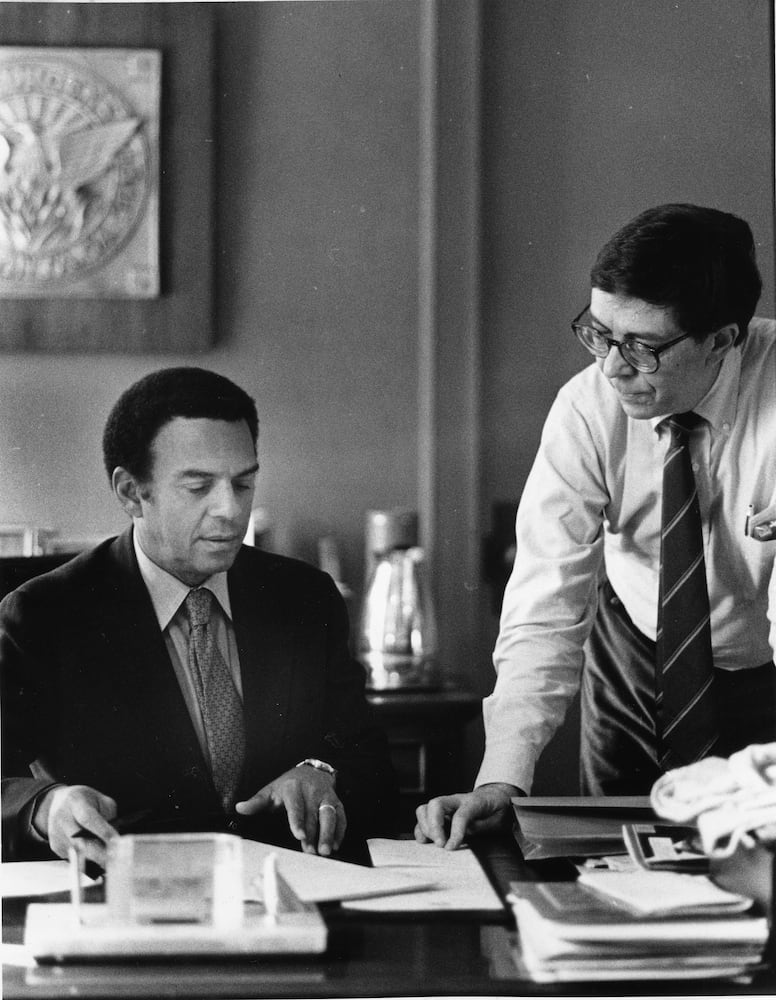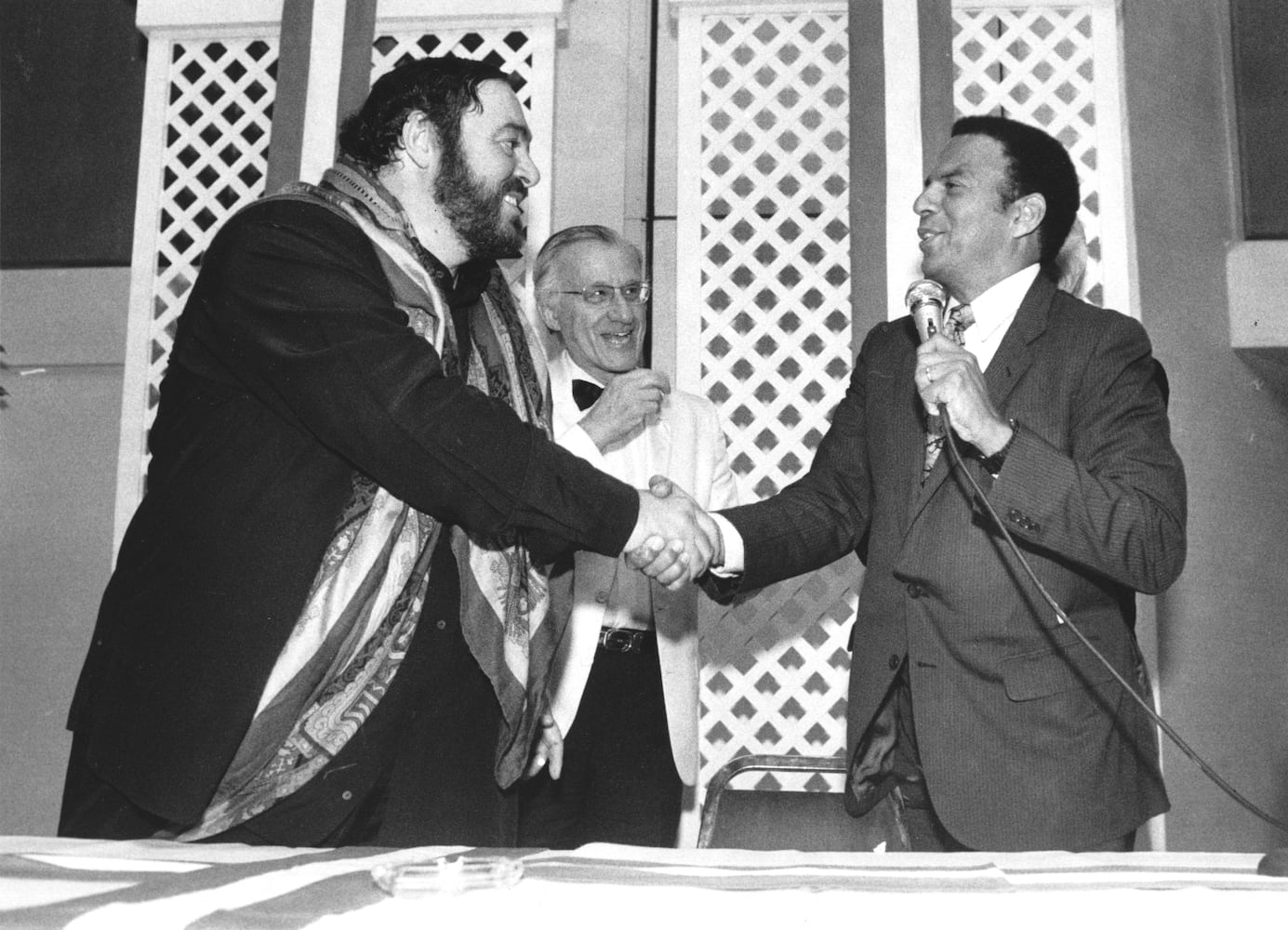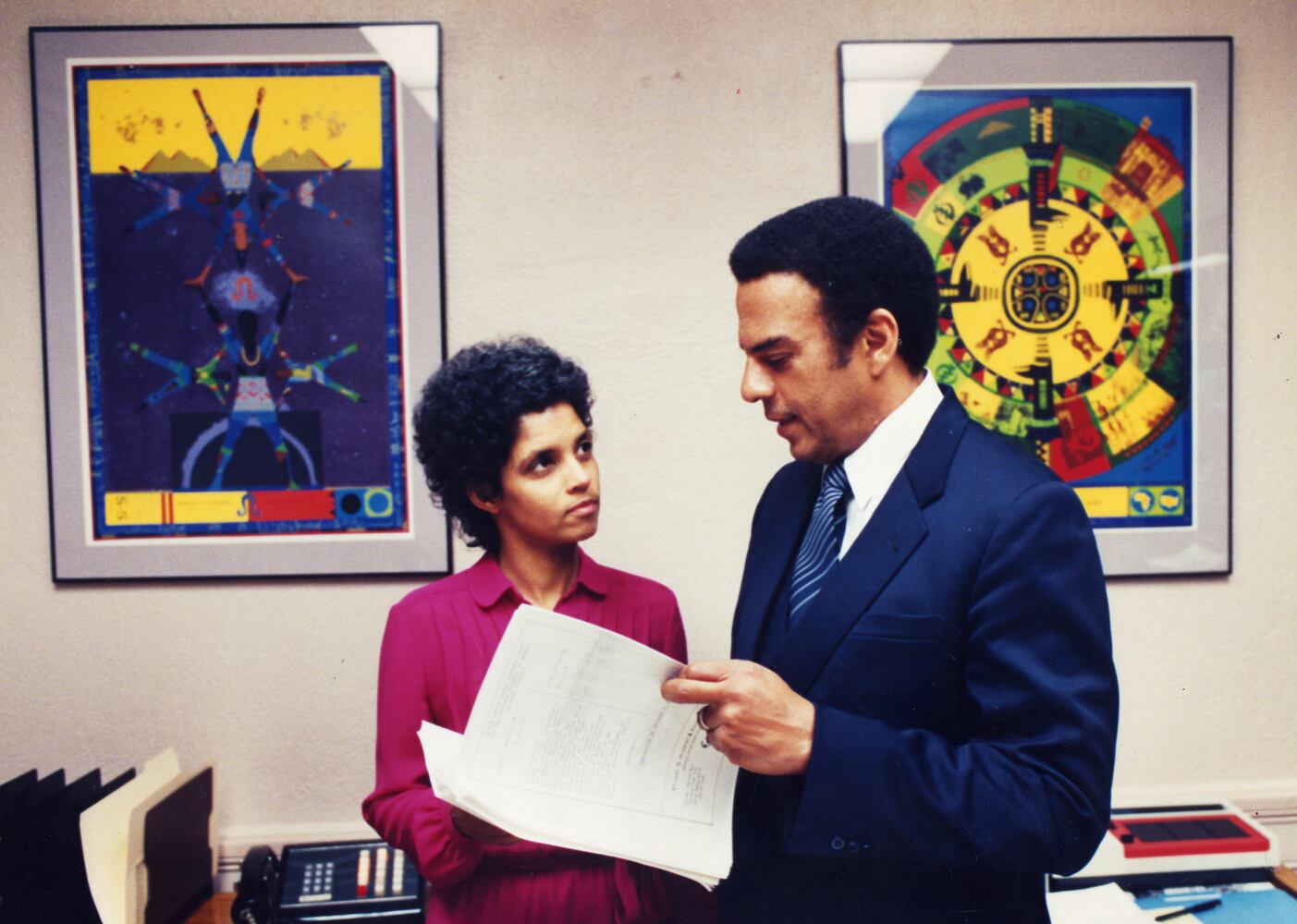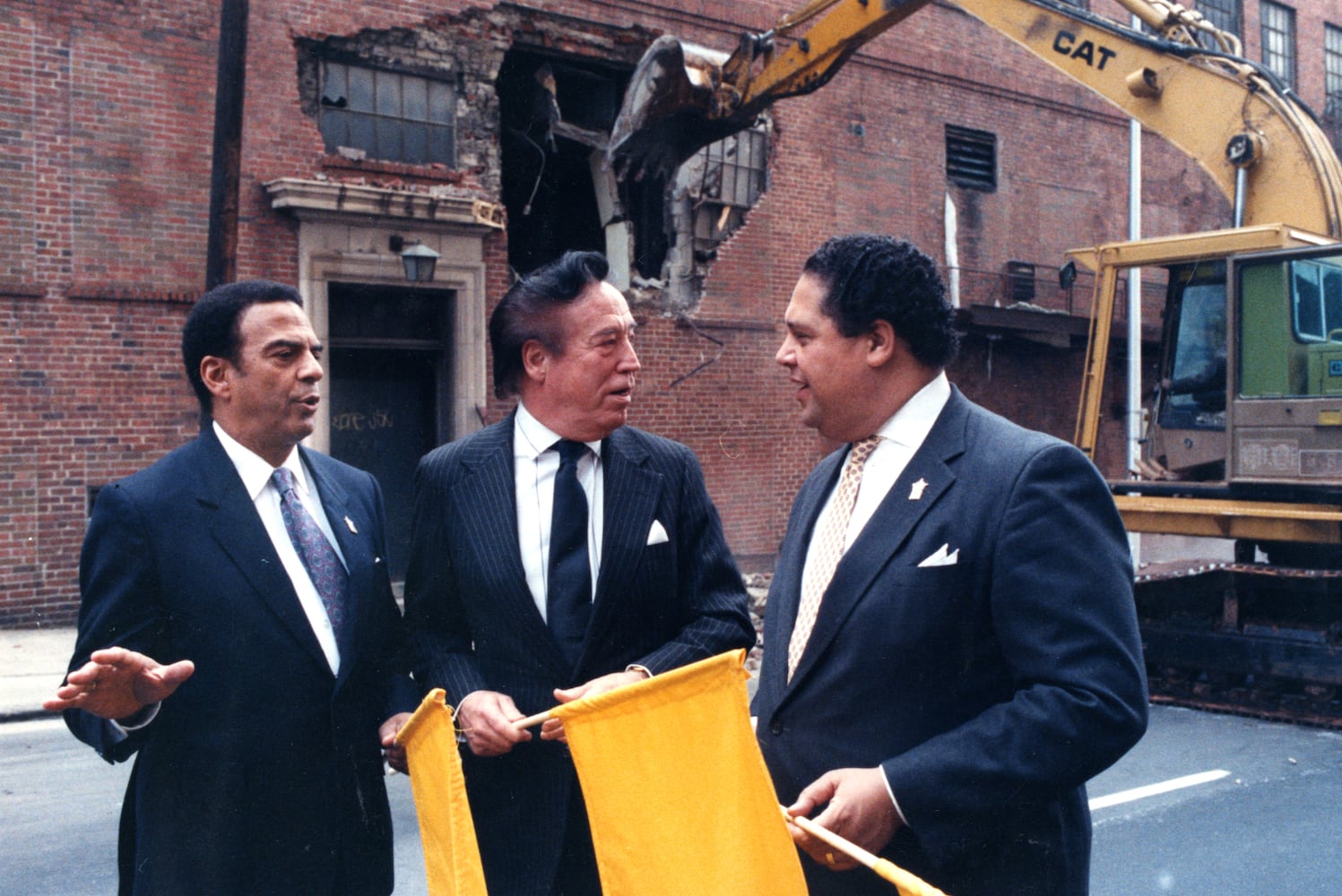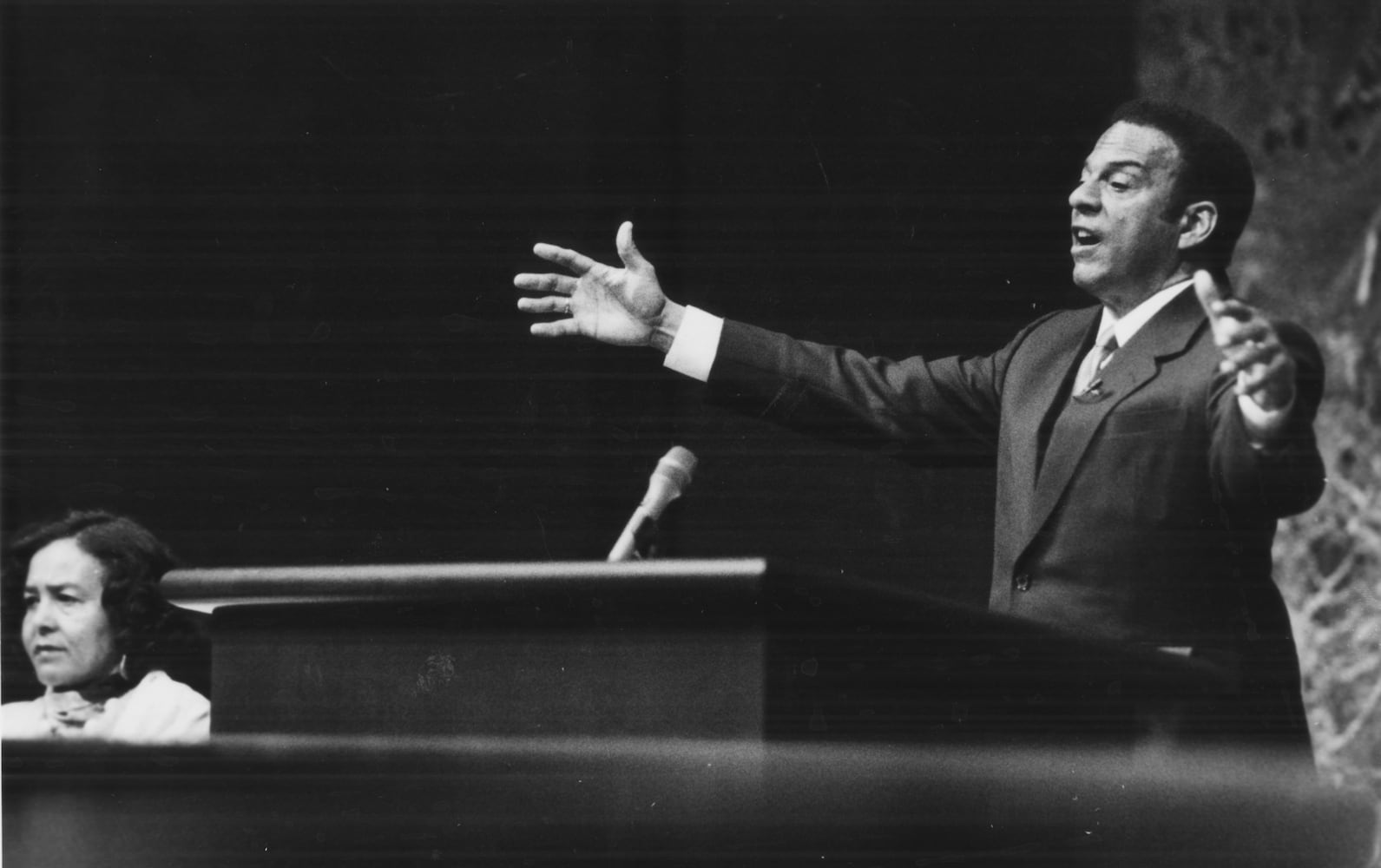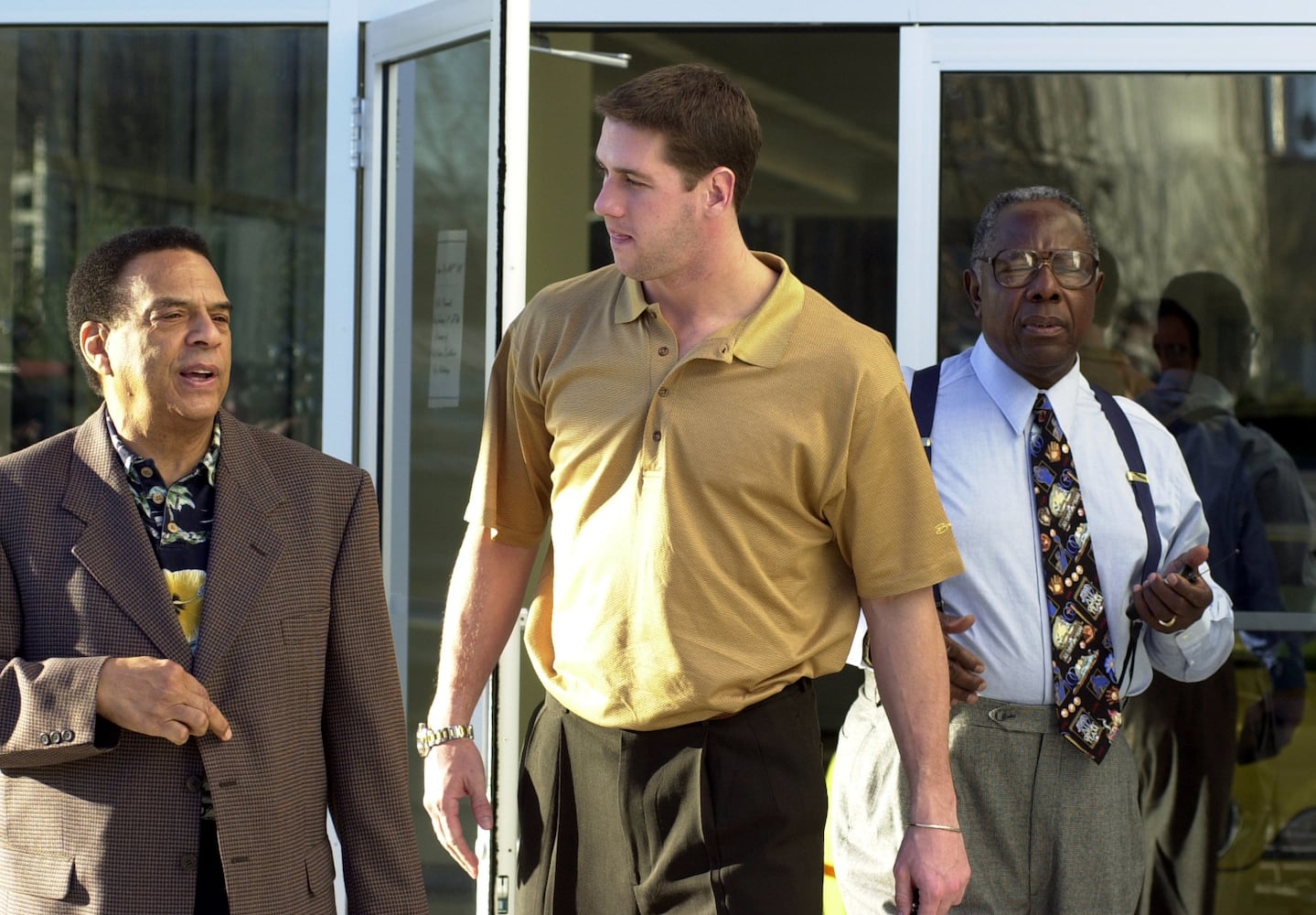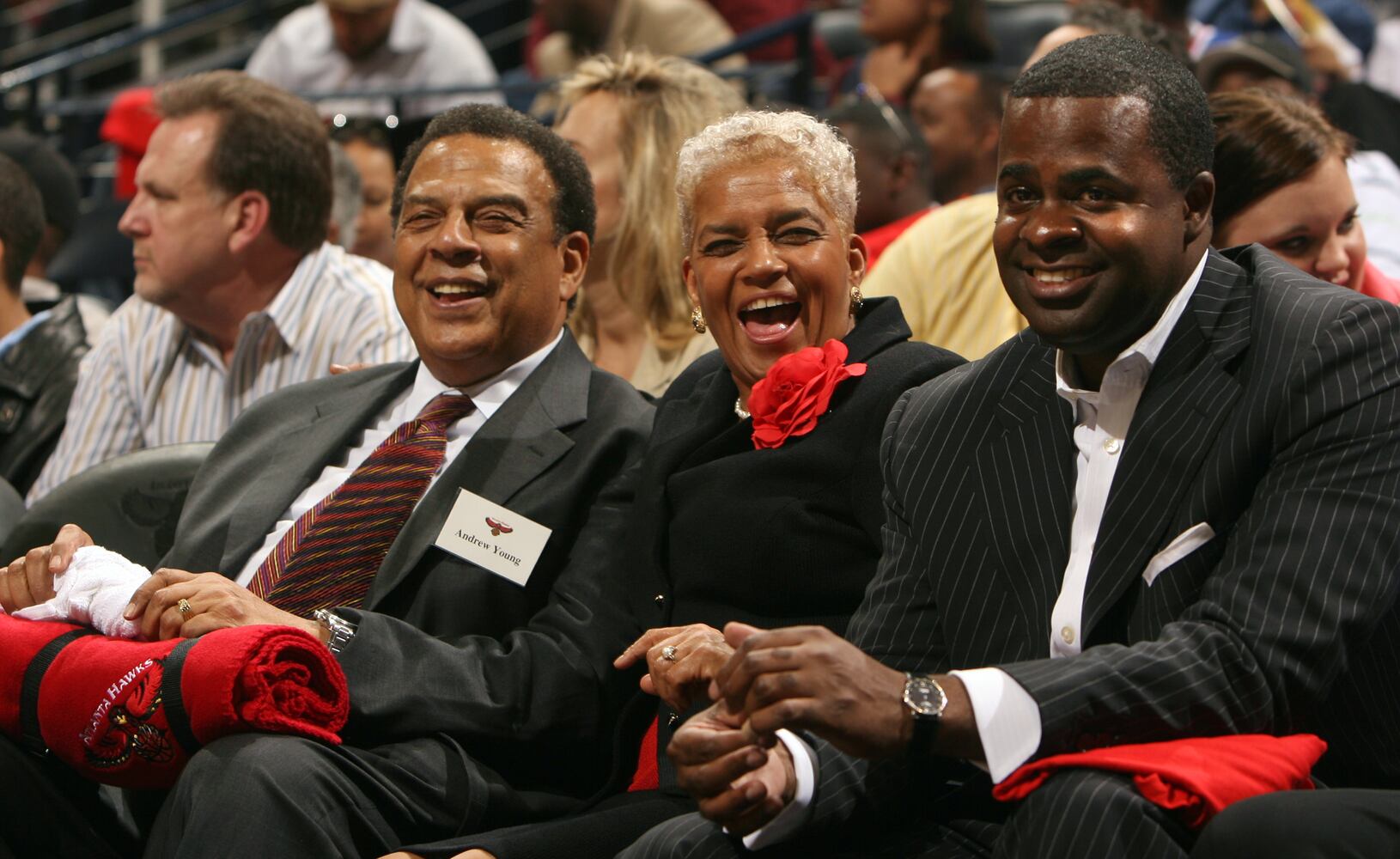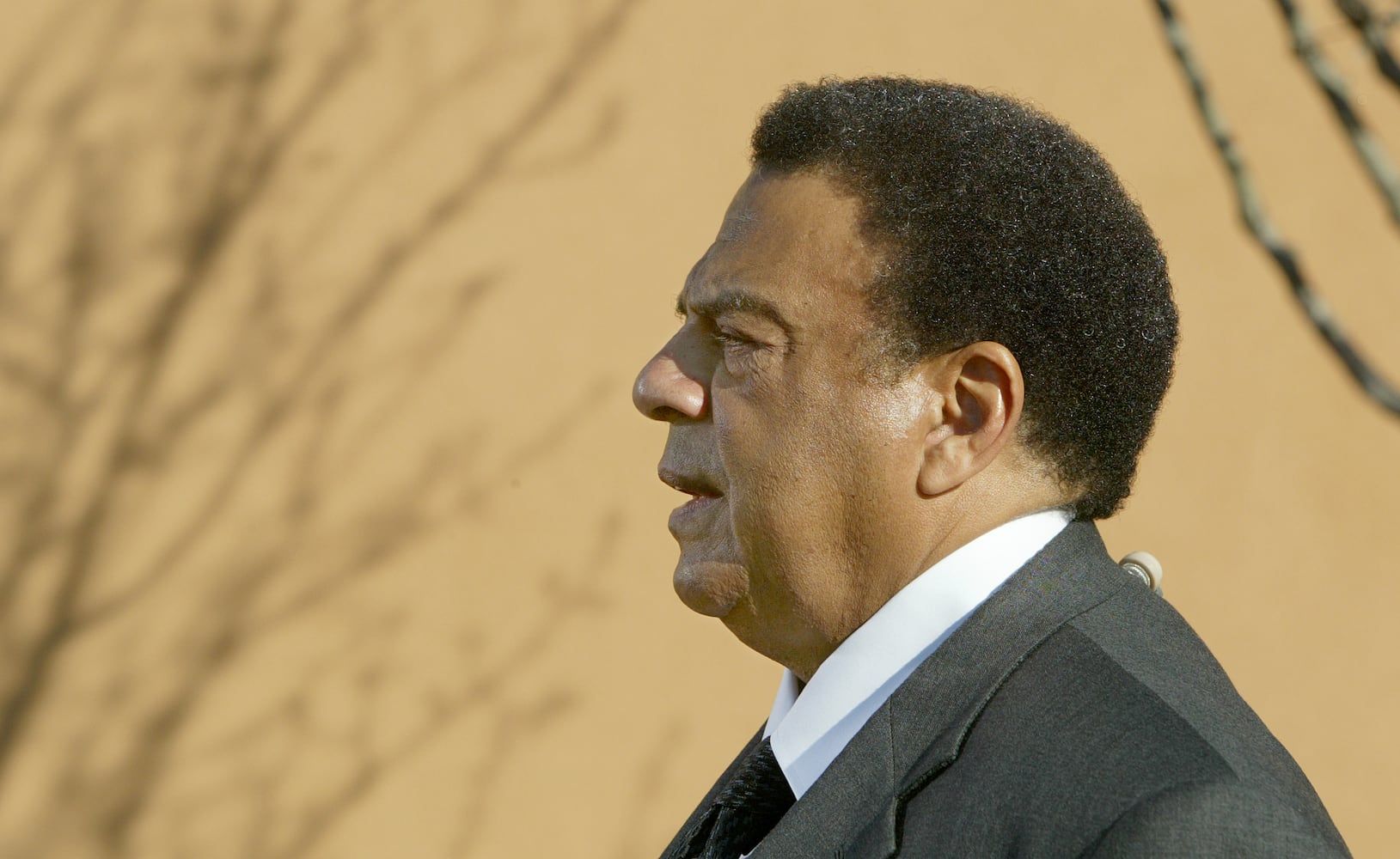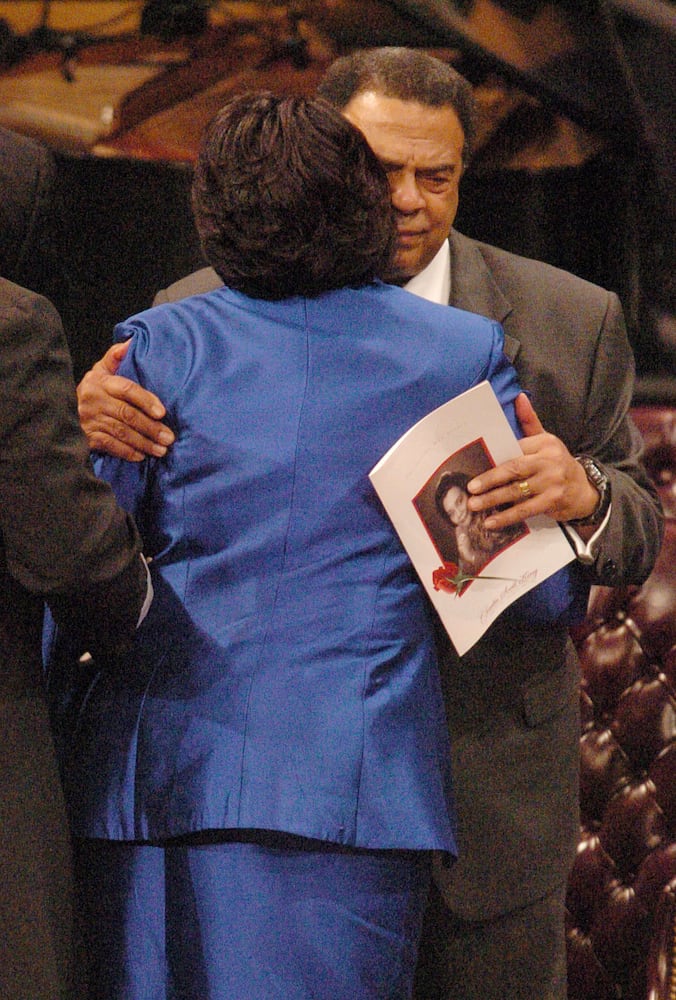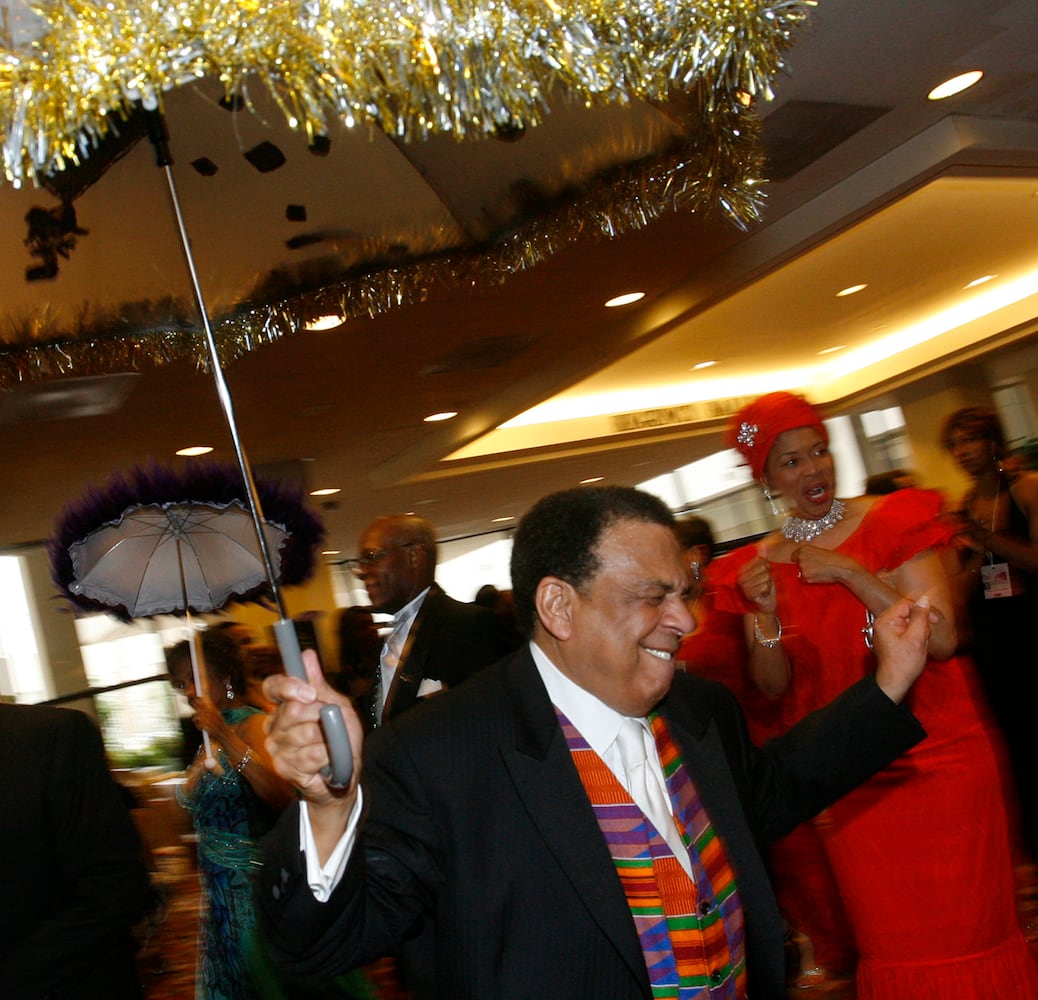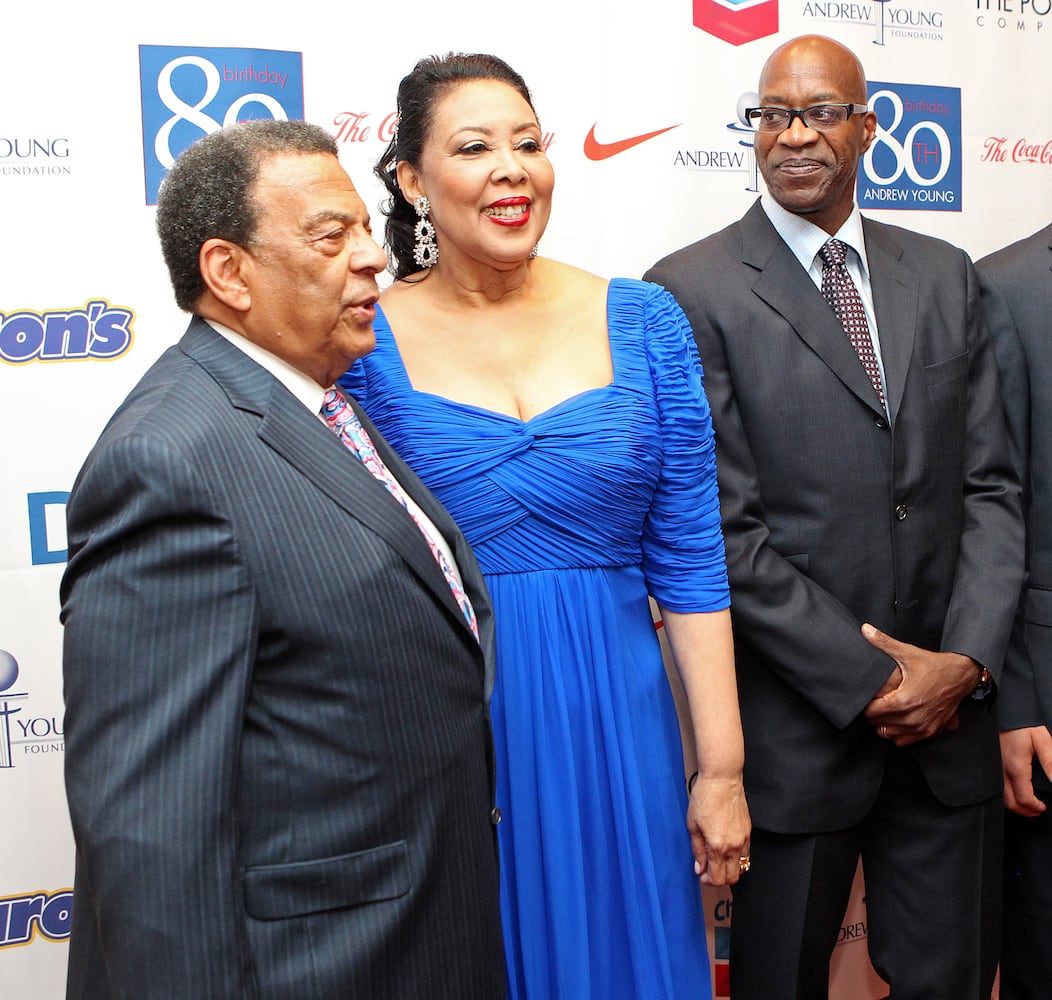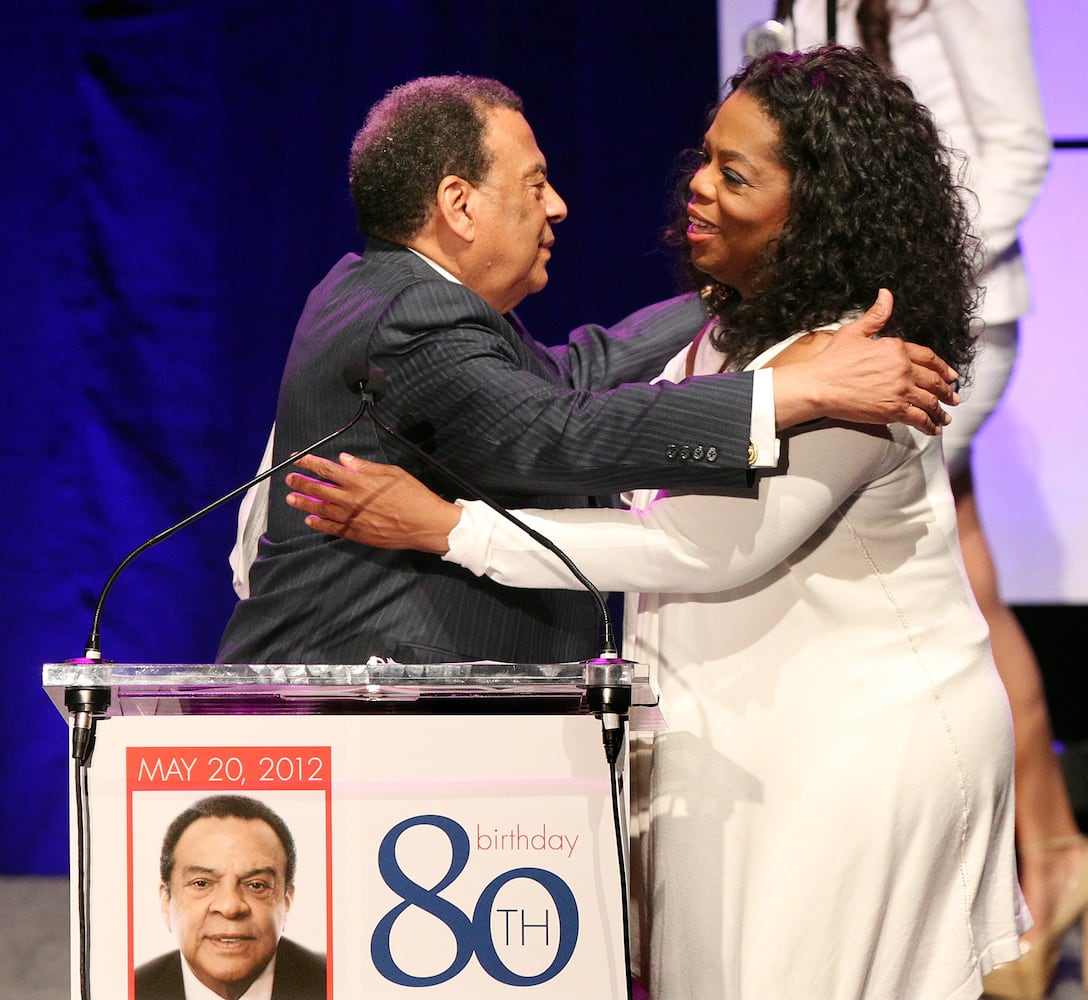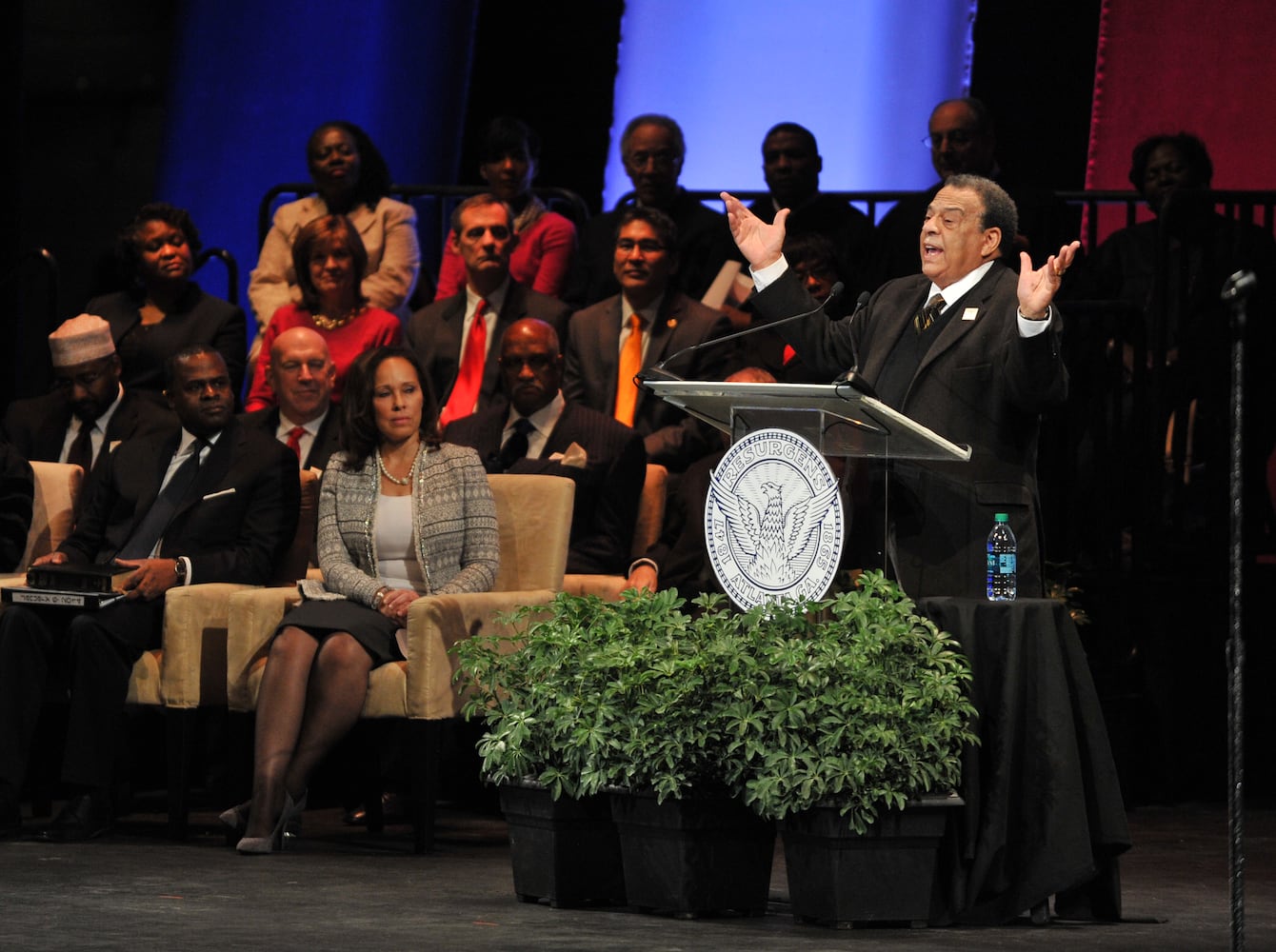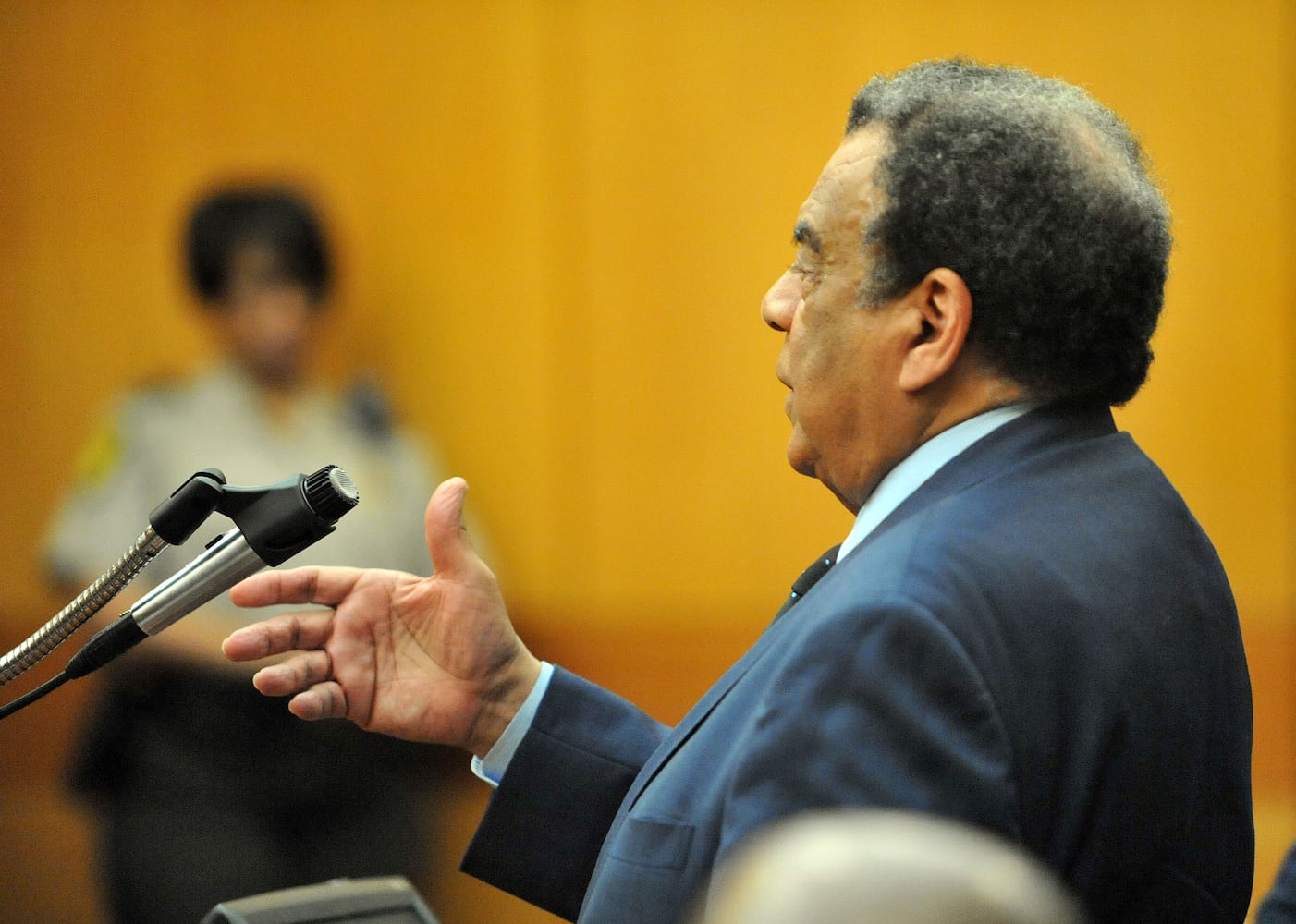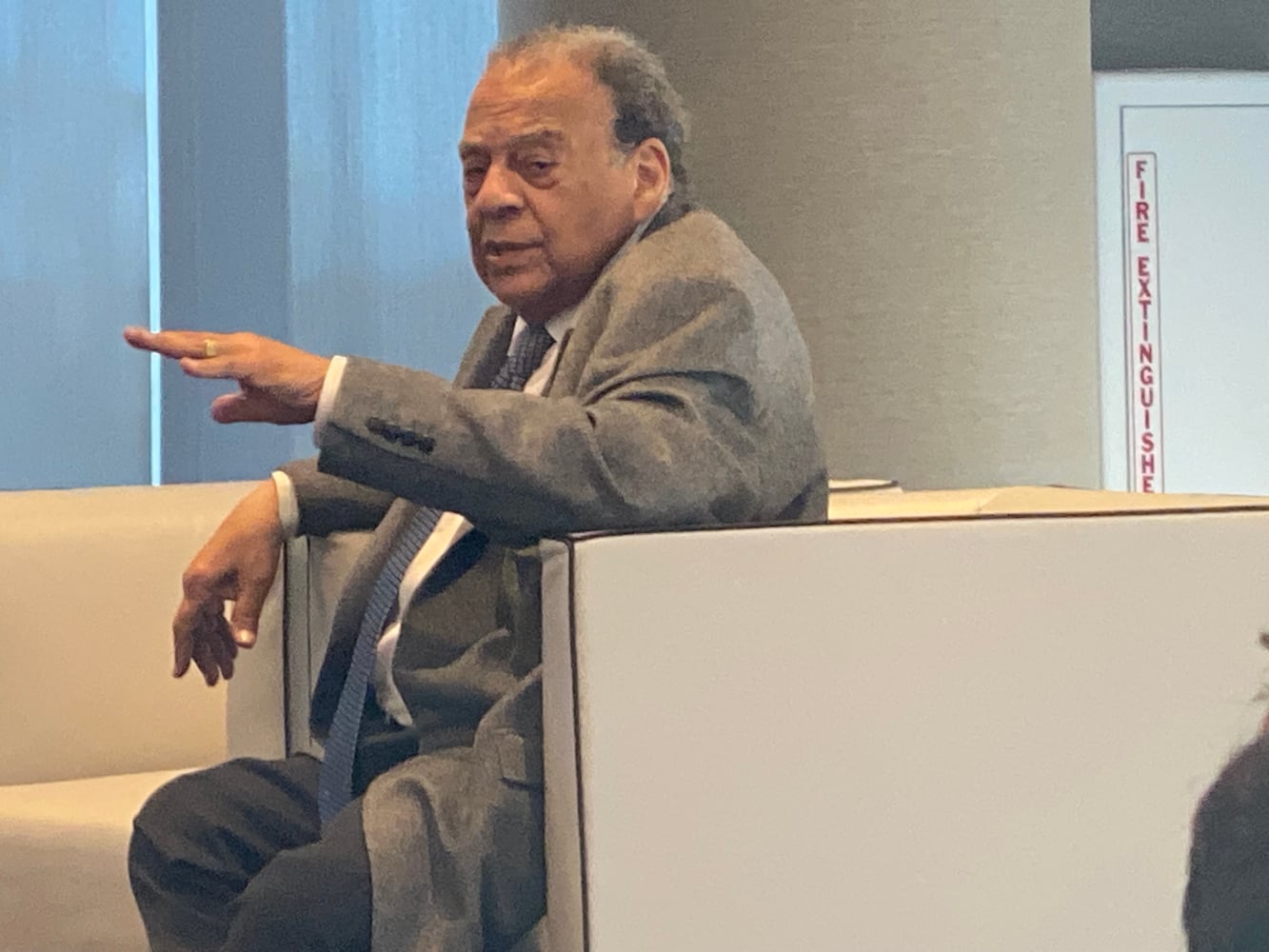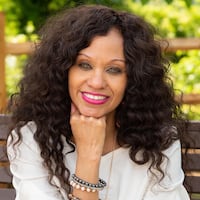Nearing his 90th birthday, former U.S. Ambassador Andrew Young says he still has work to do.
The former Atlanta mayor reflected on his life, epiphanies and the civil rights movement during a Sandy Springs Perimeter Chamber luncheon Wednesday. He also shared ideas for helping to feed millions experiencing hunger.
“The Bible says when I get to heaven they’re going to ask me did I feed the hungry,” he said. “They don’t mean did I have a soup kitchen and pass out hot dogs to the poor.”
Young said he has a team at The Andrew J. Young Foundation working on an aquaponics operation to grow food in water to combat climate change and rising temperatures affecting farm crops.
The luncheon was held in honor of Black History Month at Sandy Springs’ City Springs campus. It attracted more than 300 people to the Q&A conversation led by Donta Wilson of Truist Bank.
Young, who turns 90 on March 12, said the work of Rev. Martin Luther King Jr., other civil rights leaders and unsung heroes of the movement was driven by a willingness to be of service and create equity.
He reminded the audience of Rev. Fred Shuttlesworth, co-founder of the Southern Christian Leadership Conference, who survived a Christmas Day 1956 bombing of his Birmingham home. The bombing damaged Bethel Baptist Church next door where he pastored. It was one of three bombings at the church.
Shuttlesworth called on King to help start an aggressive, nonviolent desegregation movement that led to the Birmingham campaign protests of 1963 that led to the Alabama city changing discriminatory laws.
“We realized that we had been cooperating with segregation and had to stop cooperating,” Young recalled. “That means that we can’t spend our money any place that we can’t work.”
Before the civil rights movement, King moved to Montgomery solely to pastor at Dexter Avenue Baptist Church, Young said, but was called to lead the Montgomery bus boycott by the women members of the church.
“He wanted to be a pastor and wanted some quiet time and to learn how to prepare his sermon and minister to a group of ordinary people,” Young said.
King’s uniqueness was that “He trusted God and was willing to risk his life for where God led him,” Young added.
Young told the crowd that in life he often didn’t know what to do next but the key is to take things one day at a time.
Young said he tapped into his own purpose on the drive home with his parents from his graduation at Howard University in 1951. Young said he was critical of himself for being more focused on socializing than his studies in college.
During a stop near Crowder Mountain in North Carolina on the trip he became weak, he said, nearly passing out on the ground, and had a revelation.
“Whoever made all of this must’ve made me for a purpose,” Young said of the mountain and trees. “I was feeling so bad that I had a college degree and didn’t know anything. When I opened my eyes, I realized that everything had a purpose.”
About the Author
Keep Reading
The Latest
Featured
